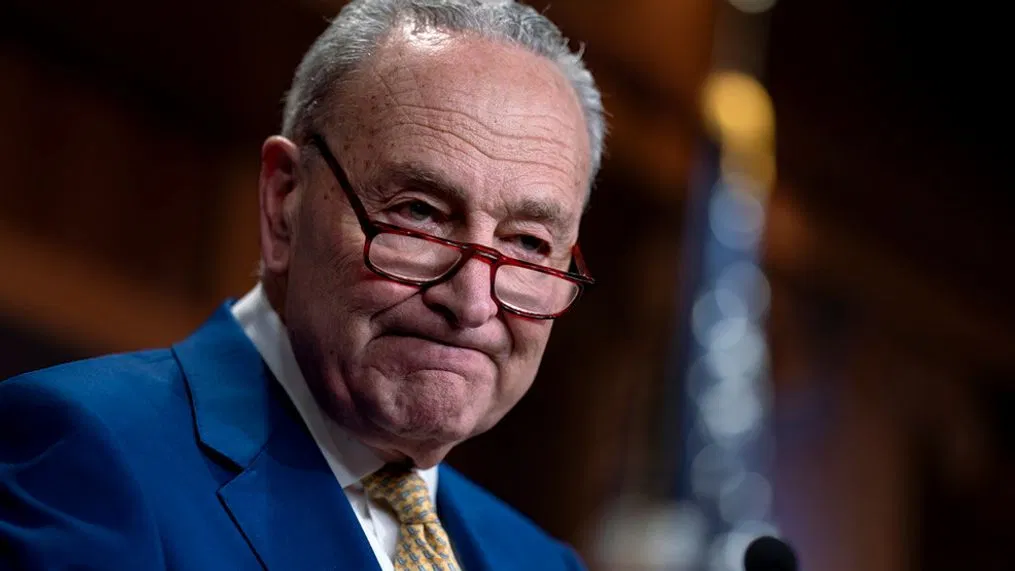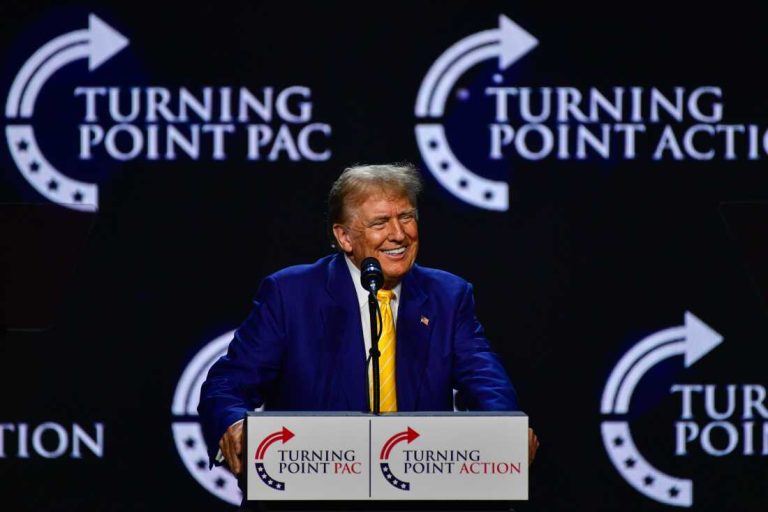Schumer Signals Willingness to Risk Shutdown in Fight Over Health Care and Spending
Senate Democrat Leader Chuck Schumer has escalated tensions in Washington by threatening to risk a government shutdown if Republicans refuse to meet his party’s demands on health care protections and federal spending.
The warning marks a striking shift for Schumer, who earlier this year faced intense backlash from Democrats after siding with Republicans to keep the government open. At the time, he argued that avoiding a shutdown was the lesser of two bad options. But now, as the September 30 funding deadline looms, Schumer says the stakes have changed.
“Things Have Changed”
In an interview with the Associated Press, Schumer explained why Democrats are now taking a harder line than they did in March.
“Things have changed since that earlier vote,” Schumer said.
He pointed to the passage of President Donald Trump’s tax and spending legislation, which included cuts to Medicaid and other health care programs, as the turning point. According to Schumer, the cuts unified Democrats in opposition — something that wasn’t the case earlier this year.
Now, he says he and House Democrat Leader Hakeem Jeffries are aligned in rejecting any funding deal that doesn’t include explicit health care protections and guarantees against rollbacks.
What Democrats Want
Schumer and Jeffries have laid out clear demands before they’ll agree to any short-term or long-term funding package:
-
Restoration of Medicaid funding cut under Trump’s bill.
-
Guarantees that health care provisions in the Affordable Care Act will not be rolled back.
-
Commitments to protect foreign aid funds already approved by Congress.
“We cannot do our job if the White House can simply claw back billions after appropriations are passed,” Schumer argued. He pointed to the Trump administration’s recent block of $4.9 billion in foreign aid and its earlier support for a $9 billion cut.
Republicans Push Back
Republicans argue that Democrats are positioning themselves to take the blame if the government shuts down.
Senate Majority Leader John Thune (R-S.D.) has criticized Schumer for refusing to present a detailed proposal. “If he expects a deal, he needs to put something concrete on the table,” Thune said.
Thune also noted that Republicans are open to extending expanded Affordable Care Act tax credits set to expire at the end of the year, but Democrats want much more than just an extension.
The Political Gamble
Schumer’s tough stance contrasts sharply with his approach in March, when he voted to keep the government open despite widespread opposition within his party. At that time, Schumer warned that a shutdown would give Trump “even more control.”
That decision, however, left him politically isolated. Activists demanded his resignation, and Jeffries publicly distanced House Democrats from Schumer’s move, saying they “will not be complicit.”
This time, the calculus is different. Schumer and Jeffries are presenting a united front, and Schumer says internal polling shows most Americans would blame Trump — not Democrats — for a shutdown.
A Risky Strategy
The New York senator insists Democrats are prepared to withstand the political and logistical fallout of a shutdown if it means protecting health care and spending priorities.
“It will get worse with or without it, because Trump is lawless,” Schumer said, dismissing concerns about further inflaming tensions with the White House.
For Schumer, the gamble is that by holding firm and keeping Democrats unified, he can pressure Republicans into concessions.
Negotiations at a Standstill
As the September 30 deadline draws closer, negotiations in the Senate remain stalled. Talks over judicial confirmations broke down again on Thursday, and Republicans have threatened to change Senate rules to bypass Democratic objections.
Meanwhile, Republicans are preparing a short-term stopgap funding measure to keep the government open past the deadline. Schumer has made it clear Democrats will reject it unless it contains ironclad health care protections and assurances on spending.
Democrats’ Calculated Shift
For Schumer, the shift from March to September reflects both lessons learned and a changed political environment.
Back then, he described his decision to side with Republicans as “the lesser of two bad options.” Now, he sees a chance to stand his ground with a unified party and mounting public pressure on the Trump administration.
At a closed-door lunch with Senate Democrats this week, Schumer reportedly shared polling data suggesting that Americans largely blame Trump for dysfunction in Washington. That data may have emboldened Democrats to push harder.
Conclusion
With just weeks left before the government runs out of funding, Schumer has made it clear he’s ready to take the fight to the brink — even if it means enduring a shutdown.
The move underscores the deepening partisan divide on Capitol Hill, where health care and spending remain central battlegrounds.
Whether Schumer’s gamble pays off will depend not only on how negotiations unfold but also on whether the public ultimately sees Democrats as defenders of health care or as instigators of a shutdown showdown.

James Jenkins is a celebrated Pulitzer Prize-winning author whose work has reshaped the way readers think about social justice and human rights in America. Raised in Atlanta, Georgia, James grew up in a community that instilled in him both resilience and a strong sense of responsibility toward others. After studying political science and creative writing at Howard University, he worked as a journalist covering civil rights issues before dedicating himself fully to fiction. His novels are known for their sharp, empathetic portraits of marginalized communities and for weaving personal stories with broader political realities. Jenkins’s breakout novel, Shadows of Freedom, won national acclaim for its unflinching look at systemic inequality, while his more recent works explore themes of identity, resilience, and the fight for dignity in the face of oppression. Beyond his novels, James is an active public speaker, lecturing at universities and participating in nonprofit initiatives that support literacy and community empowerment. He believes that storytelling is a way to preserve history and inspire change. When not writing, James enjoys jazz music, mentoring young writers, and traveling with his family to explore cultures and stories around the world.









